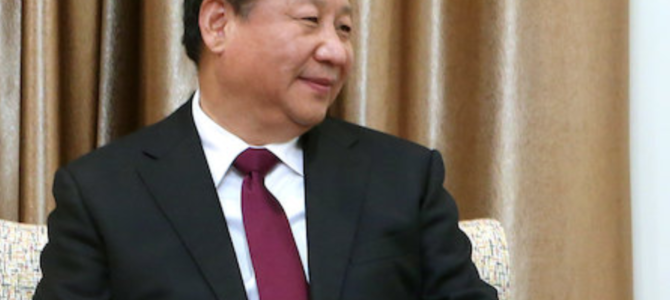
German political culture is the most passive-aggressive on the continent. German politicians rarely raise their voices or act animatedly. German media, right and left, avoid jingoism.
Their history dictates that Germans generally value public propriety and a calm demeanor much more than in their hyper-aggressive past. It doesn’t mean Germans have lost their political intelligence; they essentially dominate the continent, after all. But it does mean Germans care about how they look and are perceived a lot more than the French or the Anglo-Americans do. One can like or dislike this historical change, but it remains a fact.
It will, therefore, come as a surprise that in the largest German newspaper lately, one can read some of the strongest language against China. As calls for reparation grew in Germany, echoing those from elsewhere in Europe, the Chinese Embassy wrote a strong open letter “reminding” Germans of their “historic friendship.”
That resulted in an editorial in Bild, the largest newspaper in Germany, accusing the Chinese of imperialism. Bild editor Julian Reichelt recorded a video and wrote the editorial accusing Chinese leader Xi Jinping of surveillance and other crimes.
“Your embassy tells me that I am not living up to the ‘traditional friendship of our peoples,’” Reichelt wrote, adding, “I suppose you consider it a great ‘friendship’ when you now generously send masks around the world. This isn’t friendship, I would call it imperialism hidden behind a smile — a Trojan Horse.” Reichelt added, “You plan to strengthen China through a plague that you exported. You will not succeed.”
A separate opinion in Welt am Sonntag, another German newspaper, accused the World Health Organization of being Beijing’s mouthpiece and asked democratic countries to stand up against the corruption of institutions by authoritarian powers.
The Global Landscape Is Changing
There’s a political stir in the United Kingdom, as the British government paid China $20 million for faulty test kits. Now the former head of the MI6 has declared that China hid the details of the Wuhan virus and therefore is solely responsible, which is seen as Great Britain hardening its stance against Chinese influence. Beijing is about to realize that when you have lost the support of both the Germans and the British, you will possibly lose the rest of Europe.
How much this changes future global competition remains to be seen, but Asia is ahead of Europe and America in the curve. In fact, America is absent from this for some reason, which is incredible, given President Donald Trump’s inherent skepticism of Chinese trade.
Japan is leading a global effort to fund the reestablishment of diverse supply chains and end the Chinese monopoly and death grip over the civilized world. The Chinese government now fears that this Japanese-led economic package could lead to an exodus of Chinese manufacturing and redistribute it among different Association of Southeast Asian Nations countries so no one country has any monopoly over goods.
India has restructured foreign direct investment rules to stop Chinese firms from investing or buying Indian land or businesses. Even Australia is debating curtailing Chinese students in Australian universities, the major source of higher-ed funding. While direct reparation is not possible from China without the threat of a world war, cutting Chinese monopoly and manufacturing, as well as breaking up corrupt international institutions, is a good way of making China pay for all the deaths and economic losses.
The Great Power Rivalry Is Back
But it is ironic to see Europeans realizing some hard historic truths. It takes either grave historical ignorance or utter idiocy to believe history is monodirectional, but for some reason, Europeans believed in the liberal arc of history bending inevitably toward an egalitarian, progressive, nationless future, trusting the Pinkerian idea that economics trumps geopolitics and that one can survive in a world of great powers simply by subscribing to the rule of law and valuing norms.
Europeans are not alone. Many in the D.C. foreign policy establishment still desire a return to the liberal world order of the ’90s and early 2000s. Hundreds of foreign policy professionals in Europe and the Americas who grew up studying the same idiotic theories under the same liberal professors, and then mindlessly regurgitating them as talking points, now repeat the same argument for a “liberal order.” Unfortunately, this virus and subsequent Chinese profiteering drove a stake through that half-dead idea.
Europeans are now realizing, just as some Americans, that the old wisdom of great power rivalry is back. The actors might change, but the game remains the same. It is hitting the European political establishment harder than expected, as their entire postmodern worldview is predicated on free trade and the weakening of martial prowess and national borders. International institutions are not saving them from creeping Chinese hegemony — in fact, these institutions are facilitating it.
That American-led order that results in gnashing teeth and disdain in European capitals about U.S. demands for burden-sharing in the North Atlantic Treaty Organization is far, far better than the glimpse of the Chinese-dominated system evident the last few months.









